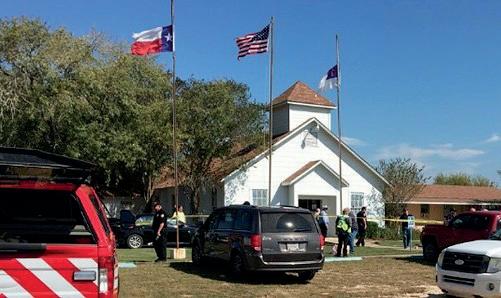
10 minute read
News
HThe special legislative session kicked off last Thursday with a grim agenda from Texas Gov. Greg Abbo : reviving the bill to restrict voting rights that Democrats killed at the end of the last session, barring transgender student athletes from teams that correspond to their gender identity and more. MOVE Texas Action
FundDeputy Director Zenén Jaimes Pérez
Advertisement
called the agenda “appalling.”
HIn an act of restaurant solidarity, downtown San Antonio’s Smoke BBQ+Skybar donated 100% of its ticket sales from a concert last Wednesday featuring country singer Kevin Fowler to Comfort Café — the nationally acclaimed, volunteer-run brunch establishment damaged in last week’s fl ooding. Comfort’s fl agship Bandera Road location is closed until further notice.
HIn another example of conservatives engaging in the “cancel culture” they love to complain about, the
Bullock Texas State History Mu-
seum last week abruptly canceled a talk on the role slavery played leading up to the Ba le of the Alamo. Lt. Gov. Dan Patrick, who, along with Gov. Greg Abbo , is on the board that oversees the museum, took credit for the cancellation, writing on Twi er, “I told staff to cancel this event as soon as I found out about it.”.
The San Antonio Food Bank raised more than $10,000 during the women’s NCAA tournament in the city. With the Alamodome at reduced capacity for its games throughout the tournament, fans had the opportunity to pay $100 to have a cardboard cutout of themselves in the seats instead while also supporting the food bank. The money raised will provide some 70,000 meals for children in the area. — Abe
Asher
YOU SAID IT!
— Chip Roy,
Republican U.S. Rep. who represents San Antonio, telling a conservative group what he wants to see in Washington to ensure his party fl ips the House and Senate in the midterms
Tantrum time with Allen West
Assclown Alert is a column of opinion, analysis and snark.
Texas GOP Chairman Allen West formally announced his plan to run for governor last week. And according to a recent report, he’s ending his time as party chief kicking over an ant hill.
Last Wednesday, the already frayed relationship between West and party vice chair Cat Parks snapped completely when he called her a “cancer” and “delusional and apparently deranged” during an email exchange, the Texas Tribune reports. Adding an extra layer of “ugh” to the exchange, Parks is a cancer survivor.
According to the Tribune, the online exchange came about after Parks asked West to intervene in an interparty dispute over whether to publish a “legislative scorecard” to grade state lawmakers on how they performed during the recent session.
A snippy email exchange between Parks and West snowballed until he accused her of being a self-promoter who’s failed to raise money for the party, according to the report. “You Ma’am are a cancer, do not EVER email me again,” West wrote, adding that she does “nothing but create chaos and confusion.”
The tirade caps off an almost perpetual pissing match between West and members of the party he was elected to lead.
Among those episodes, West bu ed heads with the party over whether it should have an account on Gab, a social media platform used by neo-Nazis and members of other extremist groups. After an executive commi ee voted to close the account, West opened a personal one on the site, according to media reports.
Last week, a group of county chairs fi red off a le er demanding West’s removal, saying it’s a confl ict of interest for him to remain in the position of chairman while running for governor, the Tribune reports. Although he formally announced his candidacy for governor on July 4, he didn’t resign from his position until last Sunday.
Hang tight until the primaries when we’ll see how many of the state’s Republican voters are keen to replace one reactionary, hot-headed assclown with another. — Sanford Nowlin
A federal judge has ruled that the U.S. Air Force is primarily responsible for the 2017 shooting at the Sutherland Springs First Baptist Church that left 26 people dead. U.S. District Judge Xavier Rodriguez said that the Air Force should have entered the shooter’s criminal history into a database that would have denied him the opportunity to buy fi rearms and is 60% responsible for the massacre. A later trial will determine damages owed to the victims’ families.


Wikimedia Commons / Gage Skidmore
news
A man shot twice with paintball rounds by a San Antonio Police Department offi cer at a George Floyd protest last summer is suing the city. In a suit fi led in Bexar County District Court, Alexander Lance alleges that he was shot without provocation and was hospitalized for three days as a result. The incident was recorded on video and widely shared at the time. Lance is seeking damages for his medical bills, lost wages and physical and mental injuries.
Last week, San Antonio Police Department offi cer Dezi Rios was arrested for DWI and failure to stop and provide information after allegedly fl eeing the scene of a car crash. Rios has a reported history of road rage incidents and was once suspended over a gun ba le involved in one of them. The offi cer may also face charges of assault over allegations that he repeatedly punched a 61-year-old man who followed and confronted him after the recent collision.
Find more news coverage every day at sacurrent.com

Joe Webb
CITYSCRAPES
When it comes to utility failures during the February freeze, it’s time to stop playing ‘San Antonio nice’
BY HEYWOOD SANDERS
CityScrapes is a column of opinion and analysis.
The Great Freeze of February now seems like a distant, ugly memory.
The plumbing damaged by frozen pipes has largely been repaired or replaced, and the seemingly dead foliage is now showing signs of life, even healthy growth. My Sago palms, once neatly frozen to a uniform golden brown, are producing an abundance of new greenery.
While the freeze now seems long ago, it’s vital that we don’t forget it, and that we pay full a ention to its lessons for the future. For that, we can start with the late June report of the city’s Commi ee on Emergency Preparedness. With some 30 pages of text and color-fi lled graphics, along with 49 individual recommendations set out in bold, the document represents the formal response by our mayor and city council to Winter Storm Uri. It also leaves lots of questions.
The report properly places much of the responsibility and blame for the failures during the storm outside San Antonio. Those fall on the Texas Legislature, the Public Utility Commission and the perhaps misnamed Electric Reliability Council of Texas (ERCOT), which proved magnifi cently unreliable.
Yet while this was a statewide disaster, some of the serious problems were quite specifi c to San Antonio — more specifi cally, to city-owned utilities CPS Energy and the San Antonio Water System. Our renewable energy sources, both solar and wind, were notably aff ected by the snow and the cold, with their production dropping well below historical averages. But despite taking regular winter readiness steps and a host of emergency plans, CPS’s other energy sources also experienced failures.
On the crucial, coldest days of the freeze — February 14, 15 and 16 — generation by the coal-fi red J.K. Spruce 1 plant plummeted, due to the “loss of control of the forced air fan feeding the fi rebox,” according to the report. Capacity plummeted from 100% on February 13 to just 1% by February 15. Even by the 19th of the month, the plant was operating at just 40% capacity.
Then there was the problem at the South Texas Nuclear Plant, where an “uninsulated water pressure sensor line froze” on the morning of February 15, dropping the STP 1’s generation to zero by the following day. That cut CPS Energy’s nuclear-based power production in half.
Natural gas-fi red plants, eff ectively CPS’s backup source, also experienced problems. The single biggest reason for lost natural gas capacity on February 14 was a “planned outage.” The next day, that “planned outage” dropped to second place, with “weather” — not further elaborated on in the report — listed as the biggest source of lost power. It was only on February 16 that “curtailment” of fuel supply emerged as a major problem, just edging out the “planned outage.” On the three critical days, signifi cant amounts of natural gas generation were lost to “controls and mechanical” failures, a category the report doesn’t explore.
Perhaps the failures at the Spruce and STP plants were only accidents, eff ectively unavoidable, although the freezing of the uninsulated line at the nuclear plant suggests an absence of planning and risk assessment. The issues with the natural gas plants also could have been reduced or eliminated by be er planning. Having a “planned outage” ahead of a freeze that forecasters warned could be catastrophic simply isn’t a satisfying answer.
The commi ee’s neatly bolded recommendation in the face of all these failures? “CPS Energy should empha-
size and refocus on their long and distinguished history of operational excellence.”
That guidance is a great example of “San Antonio nice.” It’s not much of a basis for understanding why CPS took so much capacity offl ine for “planned outages.” Nor does it help us understand why “controls [and] mechanical” problems were just as numerous on pre-freeze February 9 and post-freeze February 19 as during the height of the storm. Nor does it explain just what the “weather” issues were on February 15.
And those are just the obvious questions.
The report also turns to the San Antonio Water System, which also experienced widespread failures during the winter weather.
“SAWS failed to have draining ports installed in its above-ground piping which led to water freezing in those pipes,” the document notes, adding that upgrades “will require weatherization changes to that infrastructure.” Where are those above-ground pipes, how long are they, what will weatherization require and why wasn’t it done before? The commi ee report is silent on those.
Then there is the report’s description of how SAWS serves “the northern sector of the service area” with water from external suppliers such as the Vista Ridge Pipeline and Trinity Aquifer Suppliers using a “‘ladder climbing’ technique to pump water from station to station to move water to higher areas,” starting from the station at UTSA and Loop 1604. That, of course, made water supply to the areas north of 1604 uniquely vulnerable to a single point failure. Why? Again, the commi ee’s report leaves the question unanswered. The community needs answers.
What’s more, the document mentions “an outside expert review conducted by Black and Veatch” of SAWS. But that “expert review” isn’t appended to the report or available on the commi ee website.
It’s clear that we need to get beyond the everybody-gets-along sentiments that constitute San Antonio nice. Along with that, we need to cast aside assumptions that our utilities’ “long and distinguished history of operational excellence” suffi ces when severe weather events have become increasingly common.
Serious scrutiny of CPS and SAWS is simply too vital to this community to be left to a part-time board. And when members of CPS’s senior legal staff simultaneously submit their resignations, this entire community needs to ask substantive question about how both it and SAWS are being managed, and whether we have the right institutions and elected offi cials for ge ing the answers our community deserves.
Heywood Sanders is a professor of public policy at the University of Texas at San Antonio.
OPEN DAILY



@marketsquaresa 514 W. Commerce St. MarketSquareSA.com





